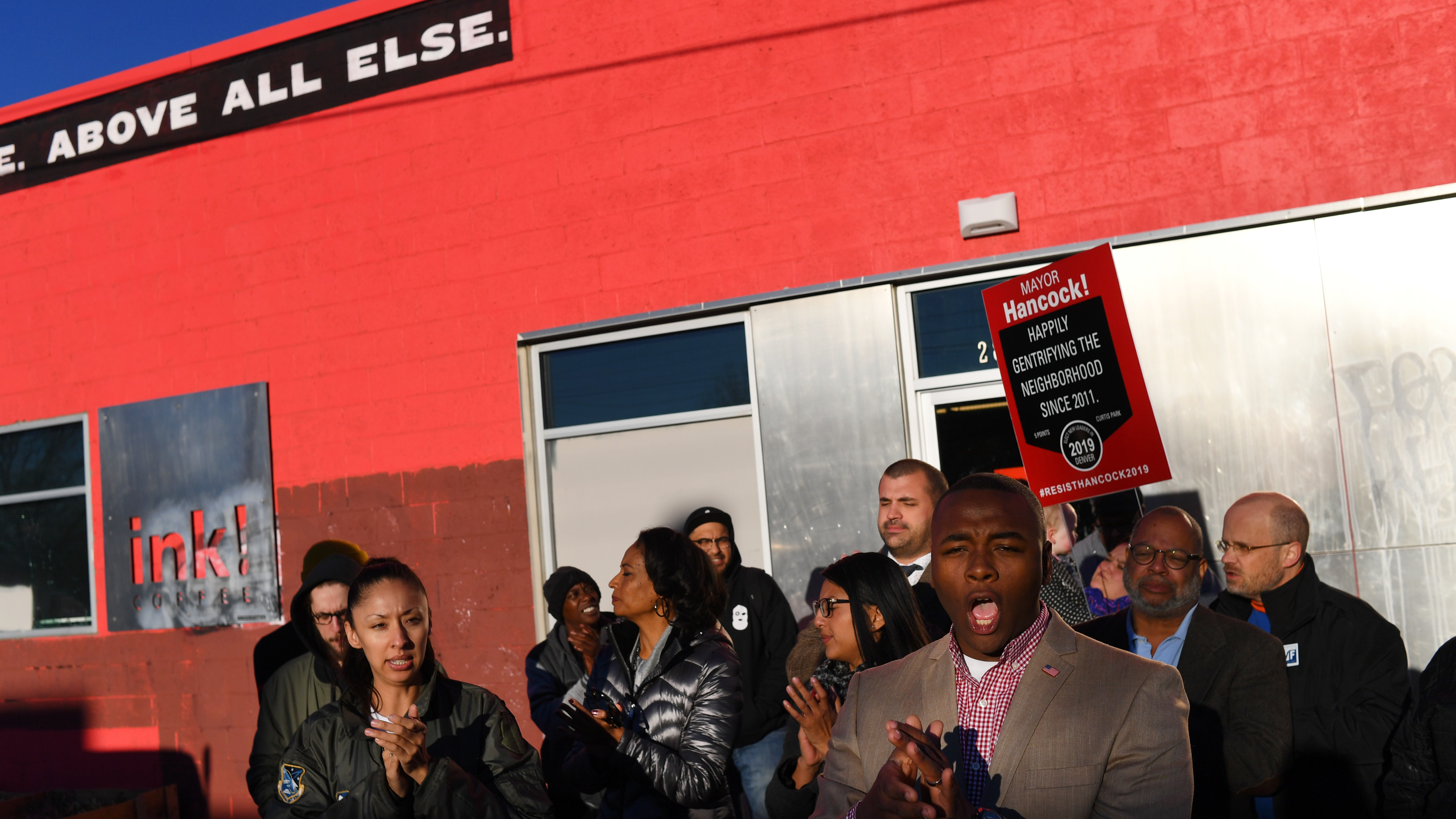Gentrification Not A Winning Ad Strategy, Denver Coffee Shop Finds
When cafe owners decide to open up shop in "up-and-coming" neighborhoods, they're likely not thinking of what their presence means for families who are struggling to keep up with rising property taxes and home values.
But again and again, these cafes end up at the forefront of a larger discussion about gentrification and the erasure of black and brown people in cities across the country.
Last week, a Denver cafe decided to tackle the issue head-on. Not thoughtfully, but in an epically bone-headed way: A cheerful ad campaign celebrating their years of slinging $6 frappes in a historically black community.
"Happily Gentrifying The Neighborhood Since 2014," one side of the cafe's sandwich board reads. The other? "Nothing Says Gentrification Like Being Able To Order A Cortado."
The Denver Post reports that the city's Five Points neighborhood, where Ink Coffee put the ill-advised sign, is a historically black community where residents have struggled to keep up with rising rents and home prices.
"All the work that our family has done to hold a space in this community — I felt was being mocked," Tony Pigford, whose family had a business in the neighborhood in 1901, told the Post. "To not be cognizant to the pain and struggle of communities of color that are all around them, it's a hard pill to swallow."
Ink has since apologized for the sign, but there have been large protests and calls for the shop's closure in recent days.
Coffee shops in particular have been targeted by anti-gentrification groups in cities across the country in recent years, which makes Ink's marketing ploy all the more baffling. In Chicago's Pilsen neighborhood, the now-shuttered Bow Truss Coffee was vandalized five times in a single month. In Los Angeles' Boyle Heights community, Weird Wave Coffee, along with neighboring art galleries, have been denounced by activists.
"We are the children of immigrants that watched our parents work for the homes that they now cannot afford to keep," Chicago anti-gentrifiers ChiResists told DNAinfo last month. "We are young residents, born and raised in Pilsen, that are hurting from seeing our people and history systematically erased from our community and the city."
